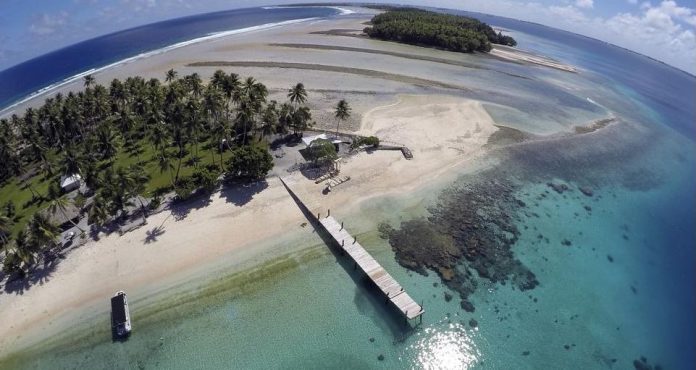The world’s highest court in the United Nation is deliberating on a case that could decide the world’s obligations to fight climate change and to protect smaller nations from its devasting impact, reports the Los Angeles Times.
The case heard in the International Court of Justice is described as the largest case in this court’s history.
Taking place in the Hague, the hearings began Dec. 2 and concluded today, Friday, Dec. 13, according to the United Nations (UN).
Lawyers and international organizations from almost 100 countries convened to debate the states’ responsibility on climate change.
According to Pacific Daily News, Julian Augon and his law firm Blue Ocean Law’s argued that under international law, states are obligated to earnestly protect and avoid hurting the environment, as well as respect human rights and the right to self-determination.
“As surely as these peoples deserve to live in the world on their own terms, so too do they deserve to be heard here,” Aguon told the Court. “The peoples of Melanesia live exceptionally close to the earth and thus feel the vandalism visited upon it acutely.”
Aguon and Blue Ocean Law traveled throughout the Pacific to collect first-hand testimonies from communities impacted by climate change. They met with tribes and villages in New Caledonia, Papua New Guinea, Fiji, the Solomon Islands and Vanuatu.
It was with these testimonies the Melanesian Spearhead Group submitted a document requesting the ICJ’s advisory opinion on climate change, The Guardian reported, sparking the unprecedented case. The document also addresses the vulnerability of developing islands in the face of the global climate crisis.
“These testimonies unequivocally demonstrate that climate change has already caused grievous violations of the right to self-determination of peoples across the subregion,” Aguon said during a hearing, per Pacific Daily News.
One of the document’s testimonies is from Ara Kouwo, a man from Veraibari, Papua New Guinea, who recalls strolling under mango trees to reach the village’s beach as a child.
Over time, Kouwo witnessed the sea levels rise, wrecking forests, traditional burial grounds and homes.
Veraibari’s villagers are currently on their fifth relocation.
“The seas are corning into our houses, which are already built on tall wooden post foundations,” Kouwo said, according to The Guardian. “If this relocation fails, we have nowhere else we can go.”
The World Resources Institute reported last year that China, the United States and India account for 42.6% of the world’s overall greenhouse gas emissions, while the bottom 100 countries account for 2.9%. However, when factoring in population per capita greenhouse gas emissions, the highly-populated India ranks significantly lower than other countries like the European Union, Russia and Japan.
Yet the world’s most vulnerable nations, including Small Island Developing States, suffer disproportionately from climate change.
While the ICJ’s advisory opinions are not binding, the UN states they are authoritative and should not be ignored.
The judges will likely take several weeks to issue their opinion after hearings conclude.
slug: international-court-of-justice-united-nations-aguon-melanesian-hague
AsAmNews is published by the non-profit, Asian American Media Inc.
We are supported through donations and such charitable organizations as the Robert Wood Johnson Foundation. This holiday season, please make a donation to Asian American Media Inc and AsAmNews and double your impact. Thanks to an additional benefactor, all donations are now being matched up to a total of $12,000.
Follow us on Instagram, TikTok, Facebook, YouTube and X.


